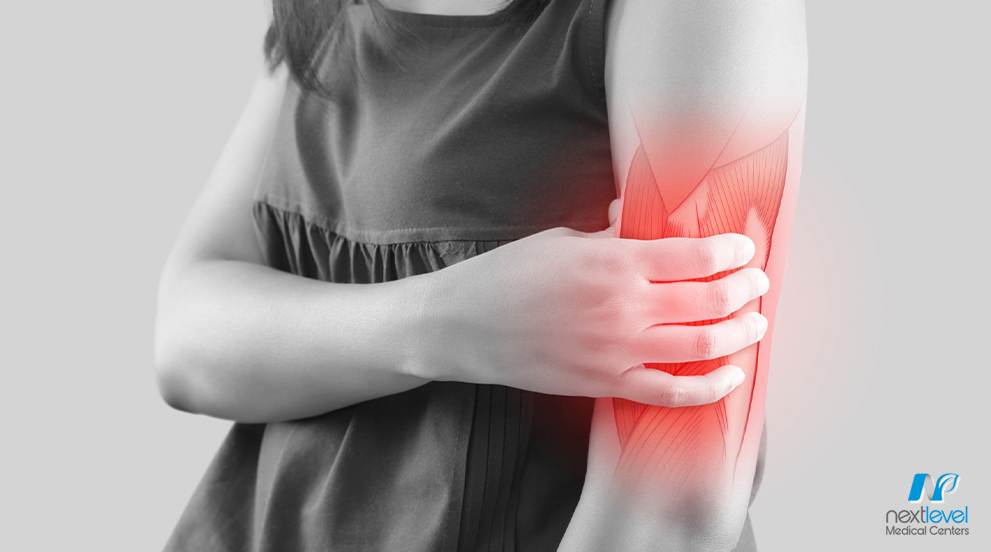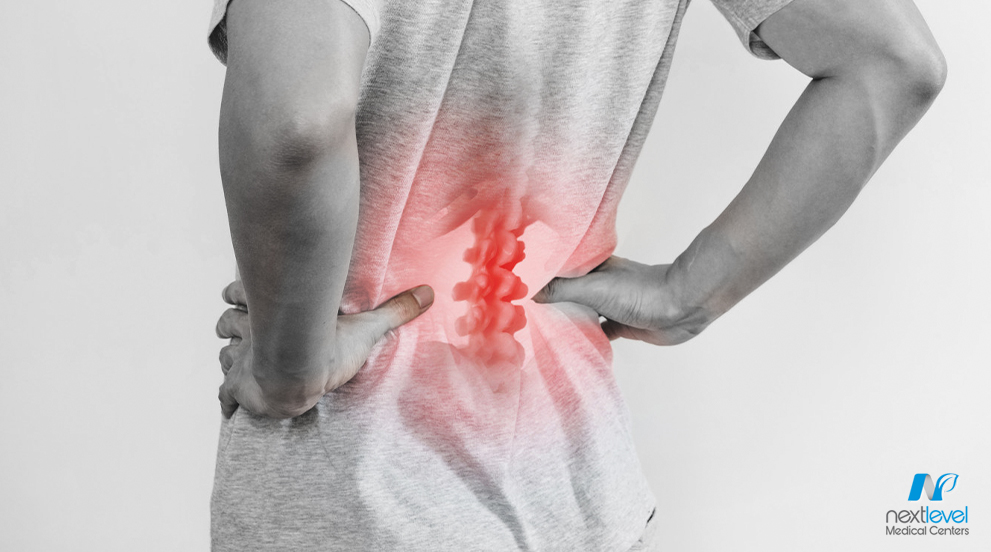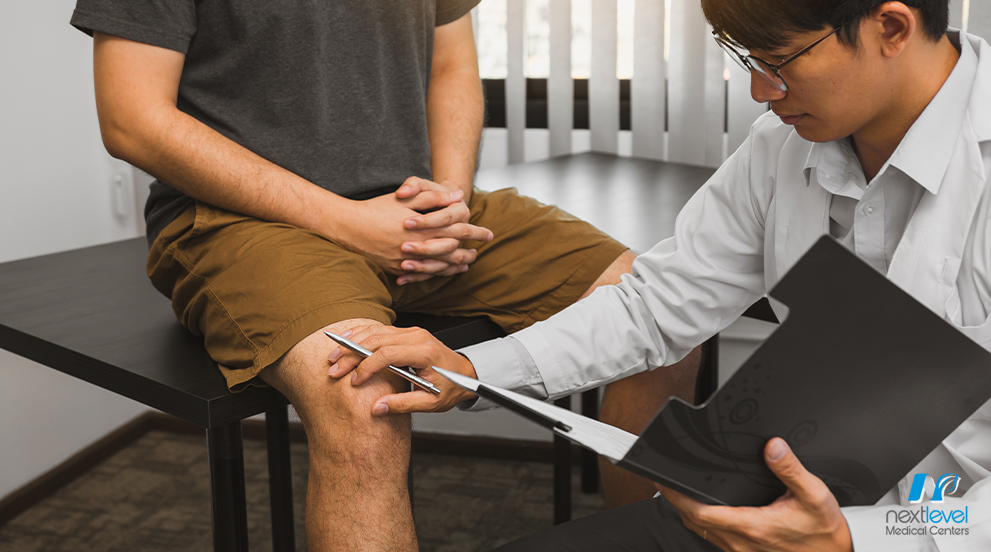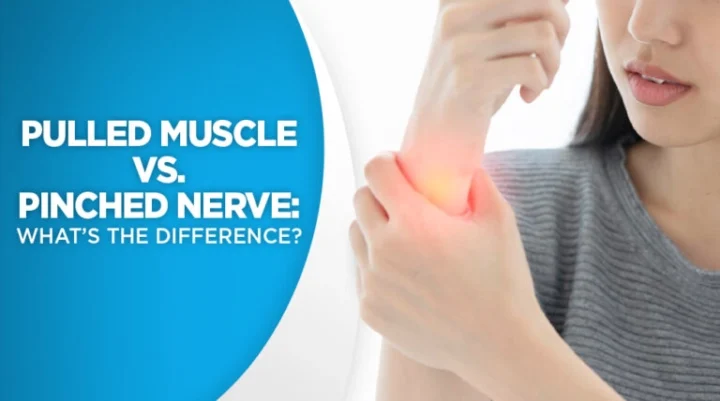Despite its unique physiology and incredible structure, the human body is a remarkably sensitive thing. Our bodies are susceptible to damage that can make it difficult to function as we normally would. There are so many possible injuries that can afflict us that the symptoms we feel can be a little difficult to discern.
Sometimes, it can be challenging to know the difference between specific causes of physical pain since they have similar general symptoms. Some injuries, while relatively minor compared to things like broken limbs, can be debilitating and difficult to diagnose. For example, it can be somewhat of a challenge to know when you have pulled a muscle or pinched a nerve without assessment.
Pulled muscles and pinched nerves can demonstrate certain similarities in terms of pain levels and symptoms that make going about your daily life a little complicated. However, understanding the differences could make all the difference in seeking effective recovery methods. We hope to elucidate the differences between a pulled muscle and a pinched nerve with this article.
What is a Pulled Muscle?
While it might seem self-explanatory, there is a little confusion about what constitutes a pulled muscle compared to other injuries. A pulled muscle is simply a strain of the human body’s muscular system that can be caused by many different things with the same net result all around. The damage incurred by pulled muscles can be minor or make physical activity a near impossibility. However, understanding what makes pulled muscles unique compared to other bodily injuries is a major step towards making sure you take measures to improve your physical state rather than make things worse.
Our entire body is packed with different muscles that allow us to control our ability to move. These muscles can be easily found in our arms, necks, backs, legs, etc. However, it is more common for us to pull one of the muscles in our lower backs, hamstrings, shoulders, and neck. Every muscle is vital to move our bodies and perform daily tasks comfortably. If you have pulled a muscle, you will experience at least some of these symptoms:
- Sudden pain
- Soreness
- Limited range of movement
- Bruising
- Swelling
- Spasms in the muscle
- Stiffness
- Weakness
These symptoms are indicative of a pulled muscle and should be taken seriously. These strains can range from mild to severe, with a severely pulled muscle occasionally leading to a tear in the muscle. The severity of the pull can affect the length of time it takes for your body to heal. In a mild pull, it will generally only take a few weeks to heal. A severe pull could take several months to heal fully.

Pulled muscles are generally caused by overexerting the muscle or suffering from physical trauma. Acute strains are more common in cold weather since muscles stiffen up in response to the lower temperatures. Chronic strains generally arise from activities involving repetitive movements like certain sports or even poor posture.
You should maintain proper posture even when seated and be very careful when lifting heavy objects to prevent pulled muscles. If you are athletic, you should perform warmup stretches before participating in strenuous activities to keep your muscles loose and flexible. Even the type of footwear you use can help minimize the frequency of pulled muscles.
Certain signs will necessitate you to seek a doctor’s insight into the pull to determine if you need advanced treatment. For example, if the pain from your pulled muscle does not subside after a week, you are experiencing numbness, bleeding, or cannot move the limb, you should seek a doctor’s advice.
What is a Pinched Nerve?
A pinched nerve is essentially what it says on the box but with far more debilitating effects than the name might let on. Nerves are another essential part of the human body that enable it to process stimuli and operate the muscles. Without nerves, we would have a nearly intangible physical experience. So, when a nerve gets pinched, it can lead to more than a few complications. A pinched nerve entails excessive pressure being applied to one of the nerves by surrounding tissue.
This means that cartilage, muscles, tendons, and even bone can pinch down on a nerve. However, how these parts of our anatomy can put pressure on our nerves can vary. Sometimes, part of our skeletal structure falls out of alignment and presses down on the nerve, such as with a herniated spinal disc following a motor vehicle accident.
Other times, it is as simple as the muscles around the nerve tightening up too much and pinching down on the nerve as they constrict. Unfortunately, a handful of conditions pinch down on the nerve as part of their symptoms. The most common underlying conditions include rheumatoid arthritis and simple obesity.

There are additional risk factors to pinching a nerve that can make certain individuals more predisposed to them. These factors include:
- Sex: Biological females are more likely to experience pinched nerves due to carpal tunnel syndrome. This is likely because they have smaller carpal tunnels compared to biological males.
- Bone Spurs: Conditions that cause the density of your bones to thicken can lead to bone spurs that threaten to press against your nerves.
- Thyroid Disease: Thyroid disease increases the odds of developing carpal tunnel that will also pinch your nerves.
A pinched nerve can result from other potential issues, such as physical trauma, but these conditions leave you predisposed to them. If you suffer from any of them, you might want to consider using preventative measures to minimize the risk of suffering from a pinched nerve. This includes maintaining proper body positioning like not crossing your legs too often, attempting flexibility exercises, and maintaining a healthy weight.
How long a nerve is pinched determines how severe the damage is and what level of care you will need to recover. A nerve that has been pinched for a short period will likely not be permanently damaged. However, if a nerve is being consistently pressed down on, you run the risk of suffering permanent and debilitating damage that can make your everyday life nearly impossible. The main symptoms of a pinched nerve include:
- Numbness
- Sharp, radiating pain
- Paresthesia
- Muscle weakness
While some of the symptoms are similar to those of a pulled muscle and can even be dealt with fairly simply, they can worsen over time. This means that consistent pinched nerve symptoms necessitate immediate medical attention to ensure that the damage does not lead to permanent disabilities or consequences for your overall health.
What is the Difference?
Now we come to the real point of our discussion today. While knowing these two injuries individually provides great insight, they are still remarkably similar in their symptoms, sensations, and general causes. However, the distinction between the two is still observable despite the similarities they seem to have. The biggest one is that overexertion and overuse are the leading cause of the symptoms of pulled muscles.
Essentially, a pulled muscle is a tightening of the muscles stretched to their limits and does not involve anything causing pressure against them. Conversely, a pinched nerve requires something else to be applying excess pressure and force on the nerve to cause the pain you are experiencing. The symptoms themselves also have a few key distinctions that can help you determine which you are suffering from at the moment before seeking a professional assessment.

The pain of a pulled muscle is a dull one with swelling around the specific area. The pain from a pinched nerve is sharp and does not produce swelling. However, the most significant difference lies in the severity of each injury when compared to one another. Nerves are far more sensitive than the body since they serve as a control cluster for sensations and physical action. When a nerve is pinched too severely, you could lose functionality of the nerve entirely if the proper treatment is not sought out promptly.
This could lead to severe consequences such as losing motor function, which is far from a laughing matter. Unfortunately, the reality is that pinched nerves are also far more common than pulled muscles in this regard. So, if you are experiencing chronic sharp pain as described, it might be worth getting checked out by a medical professional.
Seeking Treatment
If you suffer from a pulled muscle or a pinched nerve that results in chronic pain and discomfort, you will likely need to seek professional treatment. However, you might not be positive about what treatment is ideal for these sorts of things. Odd as it might seem, one of your best avenues for treating them involves professional chiropractic care. Chiropractors specialize in treating the body’s deeper tissue and muscles, so handling both pulled muscles and pinched nerves is a relatively common expectation.
The most common avenue that chiropractors use to treat these issues is physical therapy. Physical therapy is designed to use certain exercises to relax the muscles in the body to allow the healing process to take hold.
When you pull a muscle, you have strained it and prevented it from returning to its original position. Likewise, when you pinch a nerve, something is constricting and pressing down on a sensitive part of your body’s innermost components. When chiropractic providers use physical therapy to treat these, the strain and constriction are lessened, and you can experience relief from the pain.

Physical therapy offers you a range of benefits conducive to your overall recovery. For example, it promotes blood circulation and enhances the healing of wounds in the body. It is also known to alleviate pain from sports injuries. Since both pinched nerves and pulled muscles can result from overexertion or being injured while playing sports, physical therapy instantly becomes applicable to treating these specific injuries.
Physical therapy is usually used as a rehabilitative option, but its benefits for recovery from injuries like this cannot be discounted. Even though these injuries affect different specific parts of the body, physical therapy can be an apt solution for both.
Take Your Health to the Next Level!
When it comes to health, knowledge is half the battle. Understanding the distinction between a pulled muscle and a pinched nerve could prevent you from sitting on a more severe injury than it initially appears to be. The information here should help you recognize certain traits and symptoms of each injury and enable you to take the steps necessary to begin recovery.
The basic point is that a pulled muscle involves a strain on the muscles, whereas a pinched nerve is a matter of the surrounding tissue pressing down on the nerve and inducing pain. Therefore, if your pain does not resolve within a week, we urge you to seek immediate medical attention.

As for the treatment of these injuries, we at Ortho Integrative are here to help. Physical therapy is one of the most useful tools in treating either a pulled muscle or a pinched nerve. Fortunately, we offer an extensive physical therapy treatment that was spawned from the minds of doctors like Emmett Blahnik, among others, that is designed to address a wide assortment of injuries. This includes those caused by the aforementioned injuries. So, if you suffer from either a pulled muscle or a pinched nerve, our program might be just what you need to recover from them. So, contact us today and take your health to the Next Level!
Do you or a loved one have any questions after reading today’s article? Would you like a little more in-depth explanation about the differences between pulled muscles and pinched nerves? Have any concerns that you would like to be addressed regarding the services we can provide? Looking for a little more clarification on specific parts that we touched on today? If so, please do not hesitate to leave a comment down below or contact us at any time! We will gladly answer any of your potential questions, clear up any concerns you may be having, and would be more than happy to assist you however we possibly can!




